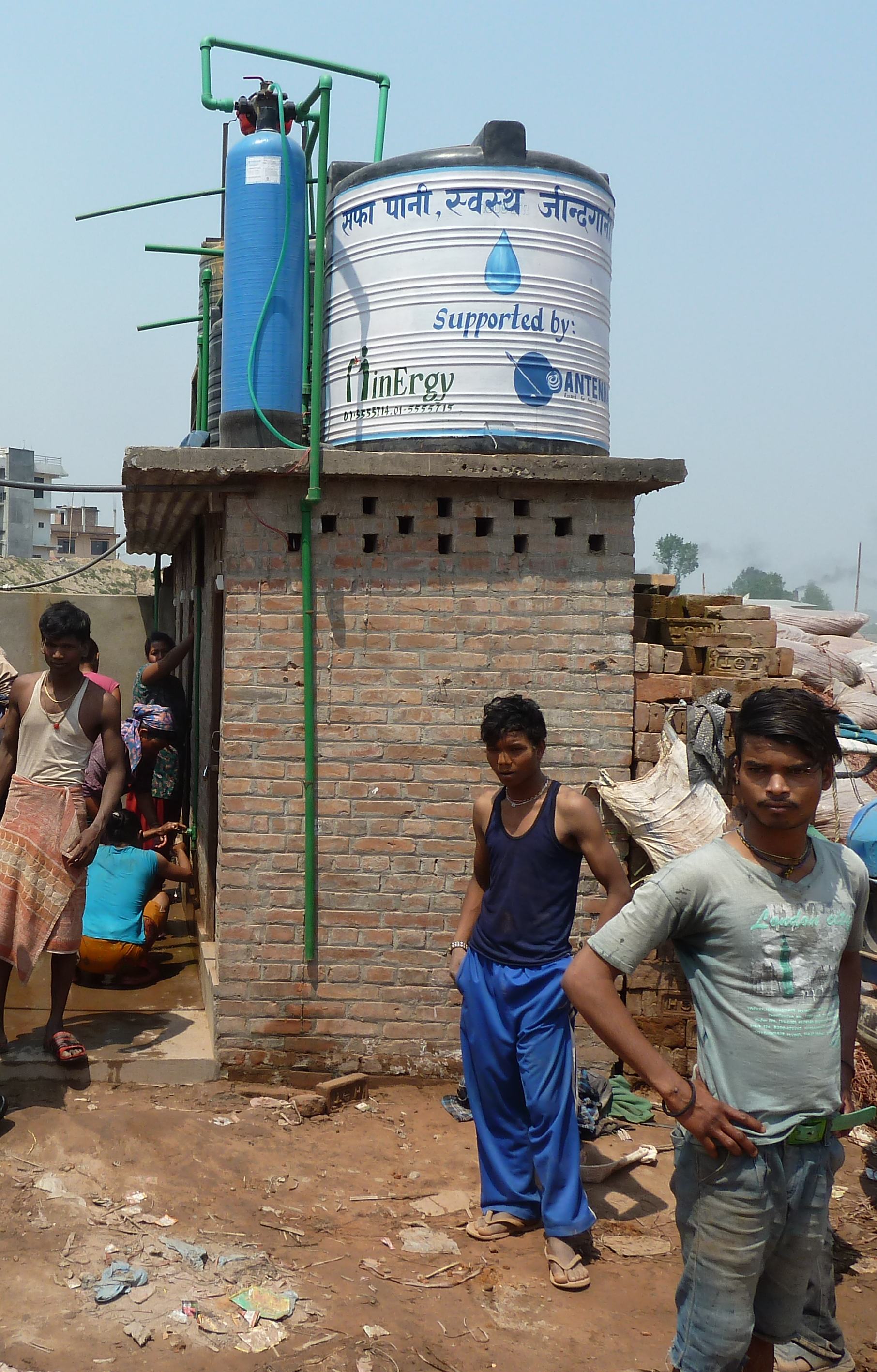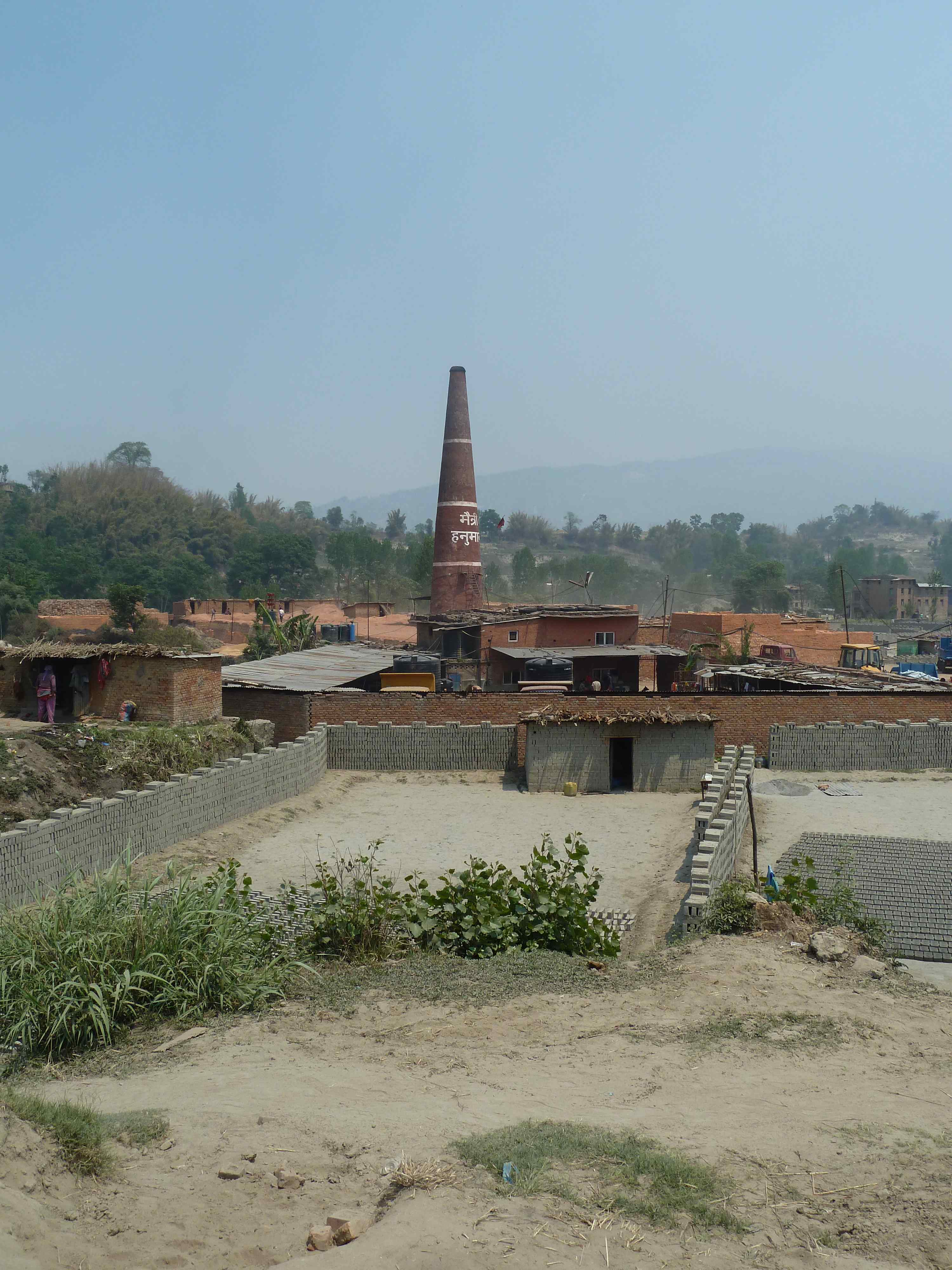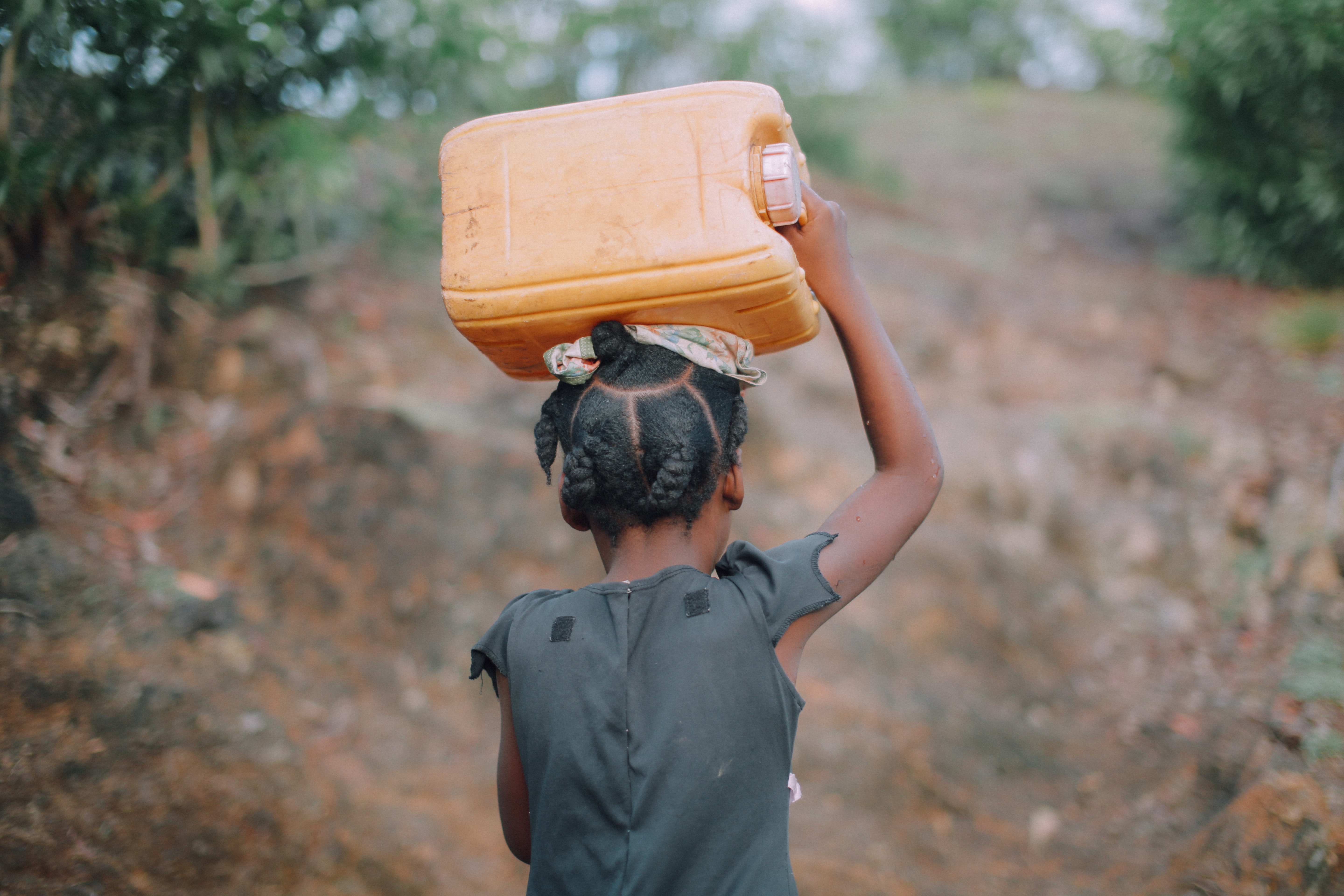Executive Summary
This case study supports and illustrates the theoretic factsheet "Business development: how to grow a safe water business" with practical insights.
The hassle to ensure long-term operations of a centralised water treatment system installed in brick kiln businesses in Nepal encouraged MinErgy - a Nepalese consulting company for the brick sector - to introduce a maintenance and repair service for their clients. Providing quality insurance for a guaranteed water supply has proven to be feasible and created new sources of income.
Today, MinErgy offers:
- Installation of centralised water treatment systems in brick kilns for the vulnerable brick workers; this is a win-win solution for workers and entrepreneurs: to reduce diarrhea and the number of sick days, improving efficiency and health simultaneously
- 6 month after-sales guarantee
- Maintenance repair service

chlorination on brick kiln premises in the
Kathmandu Valley. Source: Antenna, 2017
Brick kilns are furnaces for firing, burning or drying bricks. With 800-850 brick kilns around the country and about 120 only within the Kathmandu Valley, the brick industry is an important business sector in Nepal. Employing between 400-600 workers per kiln, it represents a large informal sector employing mainly poor workers on a 6 months seasonal basis. The whole family is generally working on the kiln and around 100 families per site equally distributed among both gender and age are performing hard physical work. Due to the difficult working conditions, wages and working hours on the edge of exploitation, the workers are very vulnerable. In addition, access to safe drinking water within the kiln premise is very poor, most workers use untreated water from dug wells or other public taps installed at nearby villages or ditches. Bacteria and other impurities heavily contaminate the large majority of such sources, leading to water borne diseases. Since 2013, MinErgy promotes and provides household water treatment system (HWTS) to the Kathmandu valley brick kiln industry. It started with an interest free microfinancing scheme where the workers can obtain a household filter for free. The cost is then retrieved from their salary. This model was very successful at the beginning, implying a win-win situation for workers and entrepreneurs. The safe water offered at low prices reduced absenteeism and therefore increased the productivity of the kilns. However, not all workers were buying the household water filter. The seasonal operation implied that the workers had to carry the filter to their home at the end of the season and bringing it back again or to buy a new system each year. It was difficult for the workers to carry the system over the long distances to the workers’ home (as they are mainly located in remote farming villages in Nepal and Indian workers from the Ganges basin). The HWTS approach revealed to be difficult. These lessons learnt encouraged MinErgy to introduce a new product/service by installing a centralised water treatment systems providing safe water to all employees throughout their time present in the kiln. After an intensive marketing campaign among entrepreneurs, fifteen brick kilns adopted centralised treatment systems to treat and distribute drinking water. However, after few years the centralised system encountered some disruptions and breakdowns and was slowly abandoned by entrepreneurs because of the maintenance hassles and lack of available technicians.

Source: Antenna, 2017
In late 2016, MinErgy launched a repair and maintenance service to allow brick kiln entrepreneurs to outsource these maintenance activities. A brick kiln owner has enough sorrows to manage his kiln and not enough energy to also take care of a water supply system. Converting the water system into a service (like operating a small water utility) was therefore a second adaptation of the product. The service is under testing with 2 entrepreneurs since 2016, and this led to his full satisfaction, especially because the water quality improved and the service is convenient. This new service approach is now promoted by MinErgy and adopted by all new clients. The price of the service package is evaluated case-by-case, depending on water quality, capacity, and design of the treatment system and the distance to the water source. The brick kiln entrepreneur integrally covers the service costs (including technicians’ wages and material needs). Not only are the brick kiln workers benefitting from the new service on offer - it is also an additional source of income for MinErgy’s sustainable business. Although this service approach finds wide acceptance, the main difficulty still remains of persuading brick kiln entrepreneurs to invest in safe water. Water quality is still not perceived as a major concern across the country, not only in the brick industry.
Lessons learnt from MinErgy
Maintenance hassles are an opportunity for social businesses to create sustainable income
Abandoned water treatment systems after few months or years of operation highlight the importance of good maintenance services. Just by having treatment systems in place does not per se guarantee safe water nor the assurance of correct maintenance of the system. Without proper maintenance, breakdowns and disruptions can occur so that customers may abandon the systems over time. Overcoming the maintenance gap by tapping in as service provider is thus a business opportunity. Operation and maintenance contracts can accordingly play a key role in both ensuring water quality while providing income and jobs for the private sector.
Intervening at the work place as an opportunity to reach the base of the pyramid
Providing base of the pyramid workers with safe water is often difficult, especially in an environment of seasonal businesses, where employee turnover is high and work inconstant. In such situations, workers find themselves with temporary contracts, limiting the willingness to invest the little money earned in a water filter. Offering a service to the kiln owner and the workers is a win-win situation. Healthier workers have less sick-days and entrepreneurs have a more efficient workforce.
Combining this line of argumentation with compliance to the human right to water can encourage entrepreneurs to invest in safe water options. Although the word “corporate social responsibility” (CSR) is often an unknown word for kiln owners, it is still possible to engage them by their pride. Identifying similar other workplaces such as garment and carpet industries bears a substantial potential for MinErgy to reach more and more people with its safe water product and service approach.
Service contracts are more acceptable than owning water systems and invest in maintenance
MinErgy’s experience has revealed that it is difficult to convince entrepreneurs to pay for maintenance after having operated a water treatment system for some time. Introducing the importance maintenance from the beginning can therefore ease a further operational maintenance contract. Approaching the employer with a short after-sales guarantee provides confidence while engaging the discussion around maintenance requirements. The approach of having a service-offering ready at the moment of selling a water treatment system to an enterprise was found to be quite efficient and opens a good and smooth approach to sell such a service.
Recommendations for scaling out your safe water activities, based on the MinErgy’s insights
- Listen to the customer’s needs and identify possibilities in the market.
- Create a proactive problem-solving culture within your safe water initiative and be open to new ideas and approaches.
- Reflect on your business activities and identify where problems occur and what does not work smoothly. This could be the source for a new business opportunity. Try to find a solution for the problem, it could potentially lead to a new business activity that is even more sustainable than the initial one.
- Identify the real needs of the targeted market segment is key in order to develop a sustainable product or service that customers are eager to buy.
- Constantly question product offering and generate innovative ideas through an open-minded company culture in order to reach more and more people sustainably with safe water and be(come) profitable.


